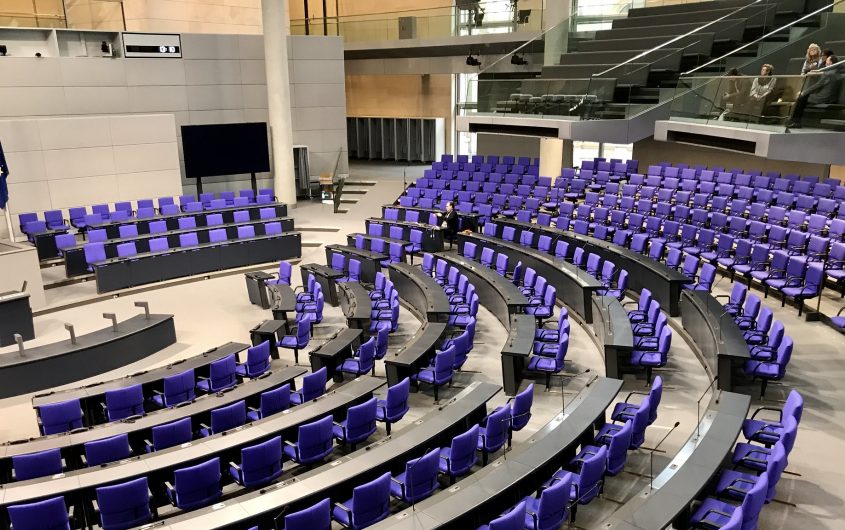
David McKelvey via Flickr
Understanding Germany’s Current Electoral Reform
Panelists:
Boris Herrmann, Süddeutsche Zeitung, Parliamentary Bureau
and
Sven Siefken, Professor of Political Science, Hochschule des Bundes für öffentliche Verwaltung, Senior Research Fellow, Institute for Parliamentary Research (IParl)
Moderator:
Eric Langenbacher, Senior Fellow and Director of the Society, Culture & Politics Program at AGI
After years of small tweaks to the electoral system for the Bundestag, the current governing parties–the Social Democrats, Greens, and Free Democrats–passed a potentially wide-ranging set of reforms in mid-March. The most important takeaways are capping the size of the parliament at 630 deputies, doing away with both overhanging and compensatory mandates, which bloated the parliament to 736 deputies. They also envision doing away with the Grundmandatsklausel (basic mandate clause), whereby parties keep any constituency seats they win and if they win three are entitled to a number of seats proportional to their share of the national vote even if under the 5 percent electoral threshold.
Potentially, this could mean that deputies who win constituencies are not seated, if the corresponding seats would be more than the party’s proportional share. The changes could also detrimentally affect two opposition parties. The Left Party has struggled to reach the threshold and is, in fact, only in the current parliament because of the basic mandate clause. Bavaria’s Christian Social Union would not just lose seats because they have consistently benefitted from overhanging mandates, but could also easily fail to reach 5 percent of the national vote.
With so much up in the air, and with the outcomes of legal challenges before the Federal Constitutional Court to come, the American-German Institute has brought together several experts to provide additional insight into how we got here and potential impacts from these efforts.







